Assembled here are key sources that have shaped the modern Middle East, Zionism and Israel. We have included items that give texture, perspective and opinion to historical context. Many of these sources are mentioned in the Era summaries and contain explanatory introductions.
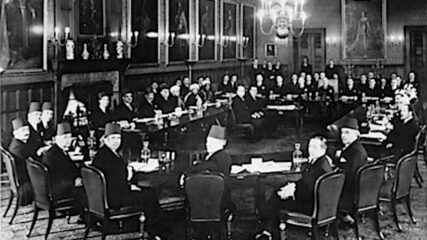
Steady disintegration of Palestinian Arab society from 1945-1949 is detailed by five Arab and non-Arab historians citing local social cleavages, economic impoverishment, fear, indebtedness, and political dysfunction.

These Foreign Relations of the United States collections provide an ongoing, in-depth view at issues and conflict in the Middle East and the U.S.-Israel relationship from 1947 to 1978.

No document better reveals the hostility which most Arab leaders and Arab states had in 1947 for Zionism and for a possible Jewish state. The Saudi King notes “that US support for Zionists in Palestine is an unfriendly act directed against the Arabs.” The King’s views were totally supported by US State Department officials including Loy Henderson and George Kennan who advocated strongly against Truman’s support of a Jewish state.
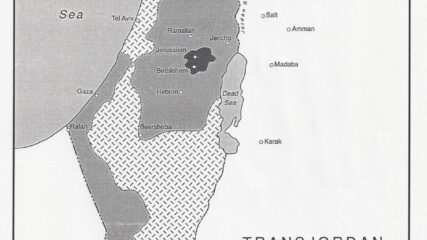
The UN recommended establishing Arab and Jewish states in Palestine, with an international regime for Jerusalem. Zionists were jubilant; Arab states and the Palestinians were indignant and rejected two state solution. No Arab state is established, Israel is in 1948
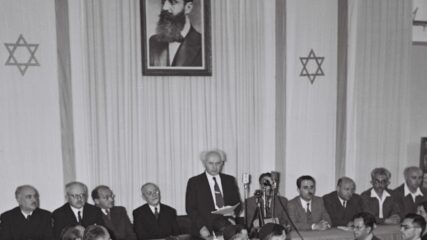
The Declaration recounts the Jewish connection to the Land of Israel, the birth of Zionism and U.N. recognition of a Jewish state’s legitimacy. It also promises that the state will be a democracy for all its citizens.
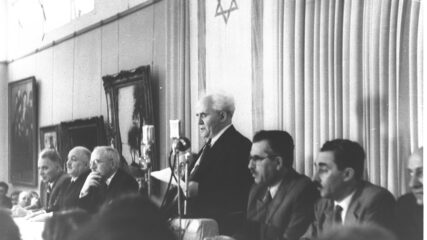
This draft spoke eloquently about protecting individual, religious, and civil rights for all. Instead individual civil rights in Israel were protected by a series of Basic Laws.

The resolution states that refugees “wishing to return to their homes and live at peace (with Israel) should do so or compensation be paid.” Israel opposes the idea because it jeopardizes Israel as a majority-Jewish state.
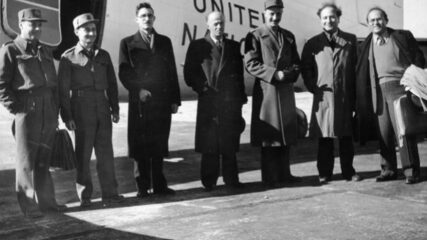
One of four agreements Israel signed in 1949 with Arab neighbors, it does not end the state of war between Israel and Egypt. They do not sign a treaty until 1979.

Sharett gives an overview of Israeli foreign policy, key issues, and relationships with UN and Arab states.
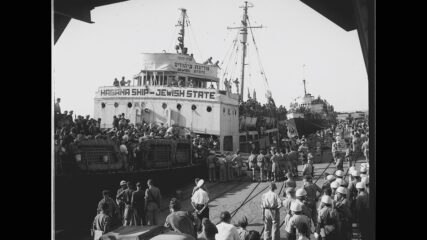
Celebrating the creation and survival of the State of Israel, the yearbook provides a thorough history of the Zionist movement from the First Zionist Congress in 1897 to independence in 1948.

With crisp analysis, Haganah Commander Yigal Allon, later a Prime Minister of Israel attributes Israel’s successes to multiple factors including the absence of a centralized Arab command, limited Arab military training, underestimating the potential fighting capabilities of local Arabs, and Israel’s success in integrating its citizens into the war effort.











